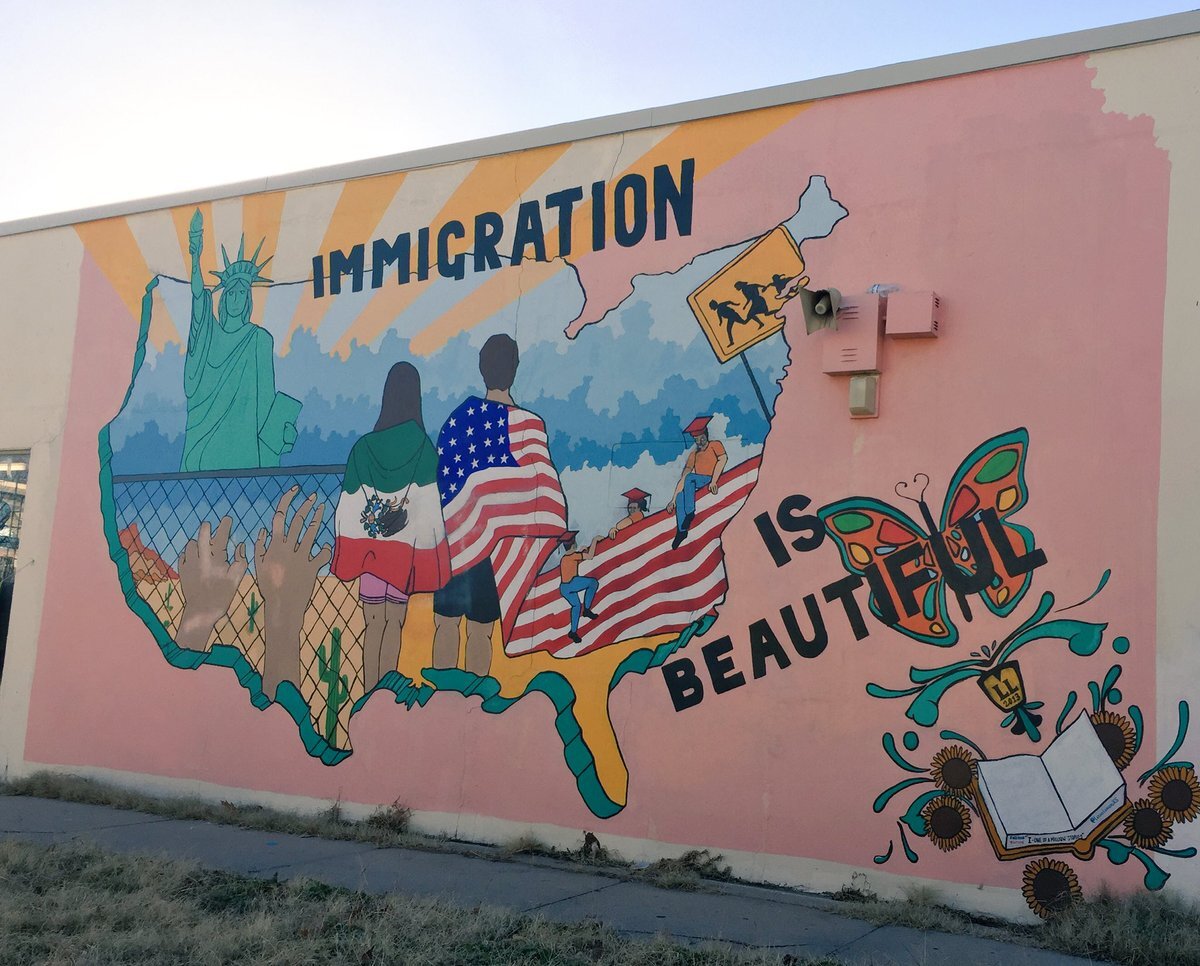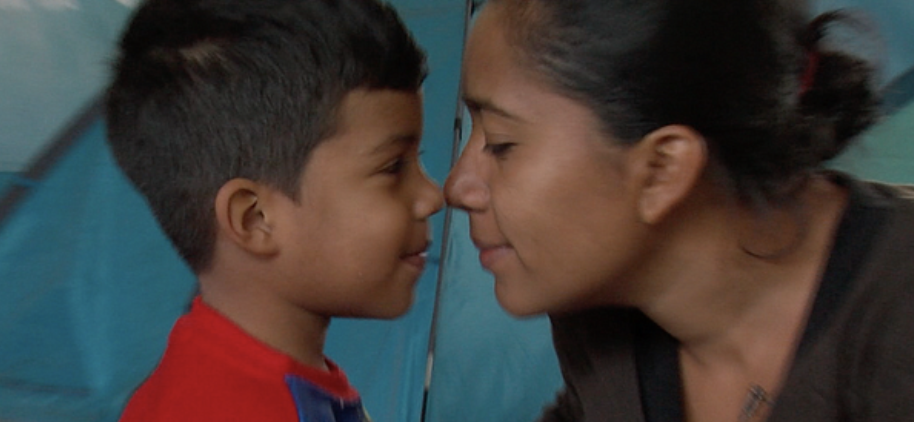Jeff Sessions Just Drew a Line Between Parent & Child, but What About You?
Amy Daniewicz, Grant Program Administrator - The Impact Fund
Where Do You Draw the Line?
For me, it’s when the line cuts between parent and child...
On May 7, Jeff Sessions stood behind a podium—the welcoming blue of the Pacific glittering behind him, a gentle breeze ruffling his hair—and vowed to separate children from their parents.
Directing his words to families immigrating across the southern border of the United States, he said, “If you are smuggling a child then we will prosecute you, and that child will be separated from you.”
Separating children from their parents—unless absolutely necessary as in the case of abuse—is an immoral act. We don’t need to be told this by a doctor, priest, or any kind of expert to know that children need their parents. We were all children once.
Jeff Sessions and those who support his actions justify their behavior by making an exception to their internal moral code. They temporarily suspend their sense of right and wrong. You can imagine them saying, “You cannot take my child from me! Children need their parents. But immigrants? They’re different. That’s a different story.”
We know, deep down, that it is not a different story.
“Give me your tired, your poor, your huddled masses yearning to breathe free.”
We were all immigrants once
“Give me your tired, your poor, your huddled masses yearning to breathe free.” These words are as etched in our American consciousness as they are in the bronze pedestal of the Statue of Liberty. Look back through any American family tree; we are all immigrants.
We Americans are an immigrant people, with stories as diverse as our roots.
My Polish great-grandfather moved here to escape a Russian occupation of his homeland. He worked as a laborer in Minnesota, lifting 50-pound bags of grain off railroad cars all day long. He could not read or write, so he brought all his paperwork home. His children did the reading and writing for him.
My German great-grandfather came to the United States in search of financial opportunity. He worked with business partners to open a glass factory in Ohio and later West Virginia. Their etched crystal designs became popular and business boomed. They would later count as customers Eleanor Roosevelt and Lyndon Johnson.
My husband moved to the United States from Korea as a young boy. His father came to get a world-class education. Every night his father would translate his graduate-level engineering textbook into Korean, do the homework, and then translate his answers back into English. When my husband turned five, his parents brought him to the local church to start kindergarten. The preacher helped them find the school, a few blocks away. My husband spent the first day watching his new teacher’s lips move, hearing the sound of her speech, not understanding a single word.
Whether we crossed the border yesterday or a century ago, we were all immigrants once. When we say the word immigrant, as Americans, we are talking about ourselves.
“They’re rapists”
...when humans make exceptions to our moral code, horrific things happen.
Donald Trump said of Mexican immigrants, “They’re rapists.” Jeff Sessions called moving to the U.S. with your child “smuggling.” They are saying that our internal sense of right and wrong need not apply here—immigrants are different.
Adolf Hitler referred to the Jewish people he was torturing and murdering as rats. Slaveowners referred to the African people they were abusing and enslaving as animals.
History shows us that when humans make exceptions to our moral code, horrific things happen.
Our children need us
Four years ago I was separated from my oldest son. He went to live with his father, not to a detention center. I don’t have to worry that I’ll never see him again; I’ll see him this summer. I know that he is happy and cared for; I can call him on Skype.
My life has had some rough patches—divorce, infidelity, financial ruin, chronic illness—but losing my ability to parent one of my children has easily been the most painful hardship I’ve endured.
The pull to parent your children—to care for them when they are sick, to protect them from danger, to watch them grow and develop, to guide them in their choices, to share their triumphs and struggles—this is a very strong pull.
This pull is there for a reason. Where would we be as a species if none of us cared so much about our young, when they are small and vulnerable and do not yet have the ability to survive alone in the world?
Our children need us, no matter what soil lay beneath our feet yesterday. They need us, no matter what soil lies beneath their feet today.
These children... they need our attention. They need our action.
They need our action
Separating children from their parents is a terrible idea from every angle: financial (the cost to maintain systems to house them), practical (the increased government bureaucracy that will need to grow to accommodate them), and strategic (the seeding of our country with youth “raised” by a government agency and all the developmental problems that often accompany this). But these points are all secondary to the main, which is that it isn’t right.
We cannot allow immoral leaders to lead us.
In the nonstop stream of scandal and wrongdoing in the news, this story affecting the least among us has gone relatively unnoticed. These children, these parents, they need our attention. They need our action.
This country is my country. This country is your country. It does not belong to Jeff Sessions alone. It does not belong solely to any one person, no matter how powerful. We the people grant the power to lead to our elected representatives, which means that we can take that power back. It’s time for us to act. It’s time to hold our leaders accountable.
What can you do?
Wondering what you can do? Here are powerful steps you can take:
Google [your city or state] + “immigrant rights nonprofit” and find an organization to support with your time, your energy, and your donations. Here are some great examples in Oakland, San Francisco, Los Angeles, Washington, DC, (1 and 2), and Austin.
Use the power of your social network to help groups doing good work spread their message. Follow the Facebook pages of these organizations and others like them, hit like on the posts that move you, and share the most important articles with a comment of your own.
Check out these great Know Your Rights videos from the ACLU. Share any that could be helpful to those in your network.
Elections are coming up. Make sure you are registered to vote, and check out Ballotpedia to be informed about where your candidates stand on this issue and others important to you.
Quality journalism is under attack. Support your favorite source of in-depth reporting by paying for a subscription.
Amy Daniewicz manages our grant program here at the Impact Fund. The Impact Fund supports the lawsuits that fight to stop bad policies like this one from wreaking havoc upon people’s lives, whether it be in the areas of immigrants’ rights, children’s rights, civil rights, or environmental justice. She has counseled children suffering from a wide range of hardships, as well as those brought upon by the complex child welfare system that is supposed to protect abused and neglected children (but too often fails at doing so). She is also a mother of three.











